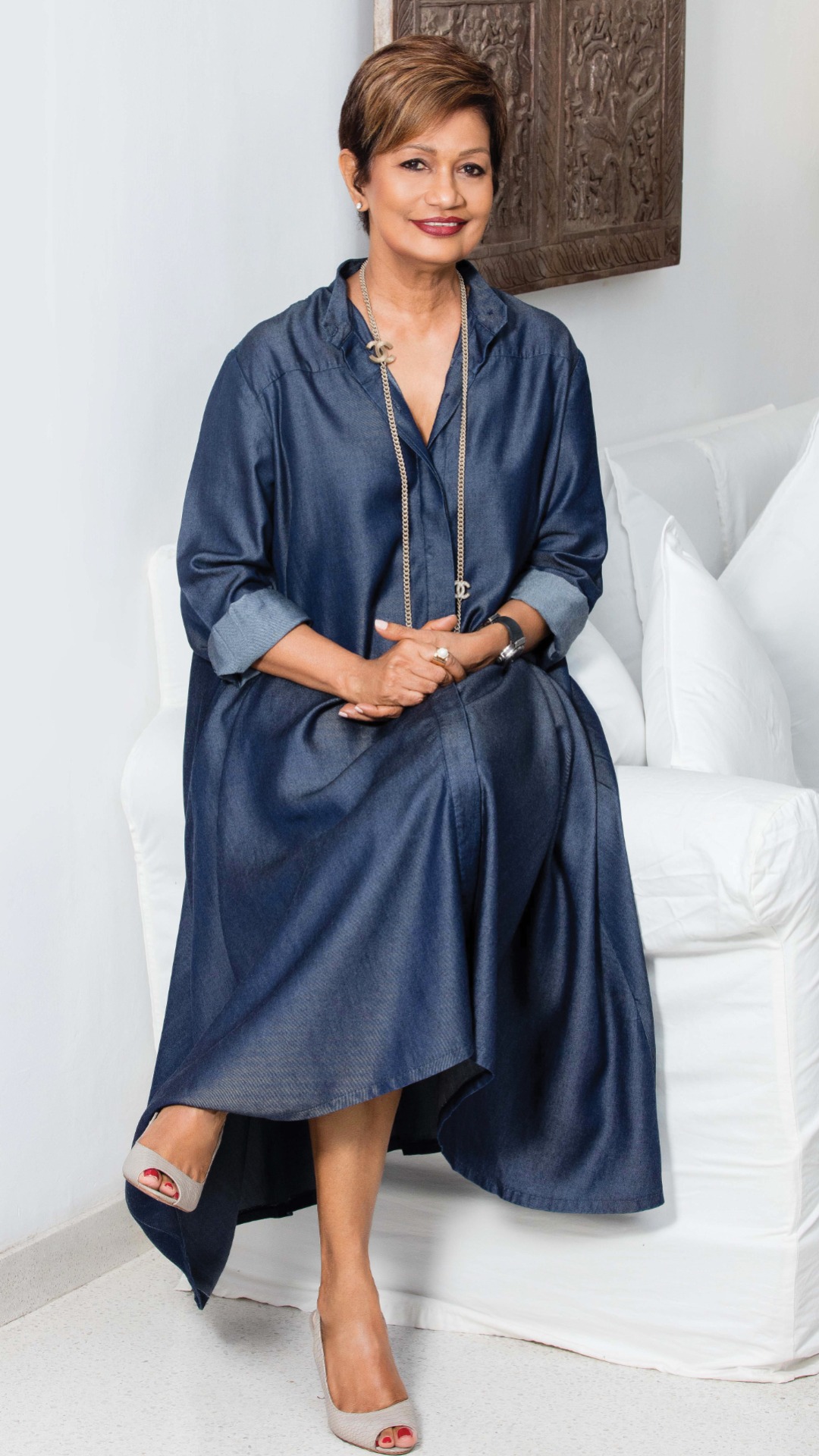GENDER ROLES
Societal Expectations
Ramani Fernando elaborates on why societal expectations of gender roles need to change
 As the reigning queen of Sri Lanka’s hair and beauty industry for some four decades, Ramani Fernando has perhaps coiffed every major celebrity in the country. And it was a chance apprenticeship in London with two British hairstylists that charted her career.
As the reigning queen of Sri Lanka’s hair and beauty industry for some four decades, Ramani Fernando has perhaps coiffed every major celebrity in the country. And it was a chance apprenticeship in London with two British hairstylists that charted her career.
Over the years, she’s forged strong partnerships to leverage her expertise – with the Ramani Fernando Sunsilk Hair and Beauty Academy, which equips individuals with the necessary skills and techniques to embark on a career as a beautician or salon owner, and the Colombo Fashion Week. Returning to Sri Lanka, she set up her own hair salon, which has since expanded into a high profile chain. In Fernando’s case, she was lucky to follow her heart, and embark on a career in hair and beauty in what was a nascent industry.
Fernando reflects: “I feel my greatest contribution has been to offer hundreds of young people from various walks of life an opportunity to pursue a career in hairdressing and make a change in their lives. I revel in my role as mentor and feel a sense of pride that many who I trained have set up successful businesses.”
Fernando says she’s amazed to see how the novices have evolved, and grown with the right training and empowerment to pursue their dreams. Yet, she is cognisant that in many other sectors, things may not be as easy.
She declares: “Gender equality is essential for economic prosperity but there are many barriers that deter greater participation of women in the workplace in Sri Lanka – e.g. workplace culture, lack of female leaders as role models, gender stereotypes, absence of flexible work practices, affordability and accessibility of childcare, and sexism.”
Sexual harassment in the workplace and at times, violence and discrimination, are common issues faced by women across the world, she asserts, adding that this applies to many industries and positions. And she stresses that these underlying issues need to be addressed and eradicated.
Her salons have been blessed with a great gender balance with men in this case, breaking stereotypes to train as beauticians and hair stylists. But she acknowledges that women are particularly hard-pressed to climb back up the corporate ladder after taking time off to have children because of a lack of part-time jobs and flexible work hours.
“It is also difficult to shake off the ‘working mum’ label and be taken seriously. Before we see gender equality in the workplace, societal expectations regarding gender roles – with women taking the majority of the load of bringing up children and looking after the home – need to change,” she urges.
Greater gender balance is better for organisations, she explains, as challenging each other and collaborating with male coworkers – who think differently – can breed creativity and foster innovative ideas that help businesses thrive.
In an ideal world, Fernando says she’d like to see more women taking charge and stepping up into leadership roles: “Women want equal opportunities; they want fairness; and they want to feel that they’re taken seriously at work.”
She continues: “I believe women make phenomenal leaders because they’re experts at making the impossible seem possible. And sometimes on a good day, they even make it look effortless. Women are pragmatic, resilient and usually able to manoeuvre tricky situations with grace. Their perspectives are borne out of a mix of trial and sheer fortitude.”
In conclusion, Ramani Fernando notes that “we are moving in a better direction in terms of female representation on boards and in leadership positions. And companies are recognising the benefits, and implementing policies and practices, to increase gender diversity. However, this transformation needs to be fast tracked so that talented young girls and women can realise their fullest potential.”




